| Dear Voornaam, Welcome to your March newsletter. I hope you and your loved ones are well. With the UK government’s recent release of a roadmap to ease lockdown restrictions and the vaccination programme showing promising results of efficacy, there is much optimism for the next few months to come. I’d like to open with congratulations to Professor Karen Vousden for winning the first Pezcoller-Marina Larcher Fogazzaro-EACR Women in Cancer Research Award. From her pioneering work on the tumour suppressor protein p53, to her roles at the Crick and Cancer Research UK (CRUK), Karen exemplifies academic excellence and scientific leadership. Her award will be presented at the EACR Congress in June.
I would also like to congratulate Professor Ruth Plummer, who heads the CRUK Experimental Cancer Medicines Centres (ECMC) in Newcastle and was recently awarded the prestigious ESMO TAT Honorary Award 2021. Ruth has pioneered the use of many new cancer agents in the clinic which have gone to change practice.
In February we published a report on our diversity in grant funding, and an equality, diversity and inclusion (EDI) in research action plan, both key steps in our strategy to make CRUK the best charity it can be, which reflects the communities we serve, and that people are proud to work and volunteer for. By creating an inclusive and diverse community of cancer researchers, we will not only support the brightest minds to thrive and collaborate, we will further our mission of beating cancer – for everyone.
I welcome your feedback and your ideas on how we can work together to create a more diverse and inclusive research community. Join the conversation using #EDIinresearch or email us at EDIinresearch@cancer.org.uk.
Kind regards, Iain Foulkes Executive Director, Research & Innovation Cancer Research UK |
|
|---|
|
|---|
|
|
| | | ESTABLISHED INDEPENDENT RESEARCHER, CLINICIAN
05 May 2021 |
|
|---|
|
|---|
| | | Applications accepted all year round |
|
|---|
|
|---|
|
|
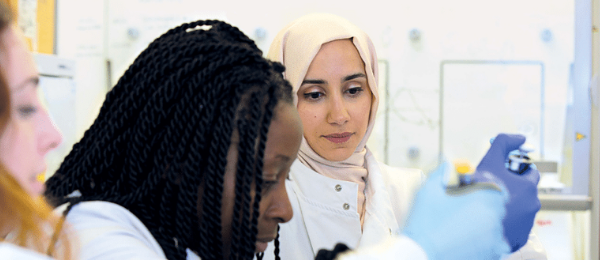 OUR COMMITMENT TO EDI IN RESEARCH We’ve launched two important publications that represent key milestones in our journey to develop a more diverse and inclusive research community: Diversity data in our grant funding 2017– 2019: Reporting on who applies for, and is awarded, our response-mode research grants – including their diversity characteristics such as age, disability, ethnicity and gender. These insights will help us take the most effective action to bring about change.
EDI in research action plan: Our plan to develop a more diverse and inclusive research community and contribute to tackling systemic issues like underrepresentation and racial bias.
|
|
|---|
|  COMMENTARY: EXAMINING EQUALITY IN OUR GRANT GIVING We want to listen so that we can better understand and address systemic inequalities in research. This will help us to create equal, diverse and inclusive research environments that enable all brilliant minds to come together, thrive and progress. We published commentary from Chantelle Lewis and Paulette Williams (Leading Routes), Dr Lynn Asante-Asare (University of Leicester) and Dr Sophie Acton (University College London) on our diversity data report. |
|
|---|
|
|---|
|
|
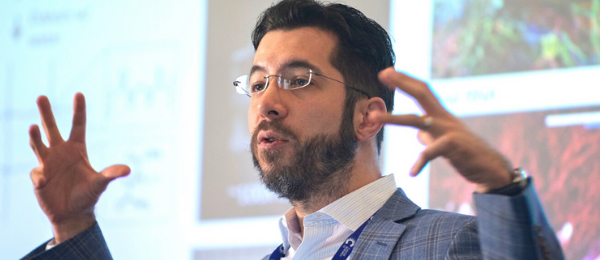 NEW TECH CAN CREATE NANOSCALE GENOMIC MAPS OF TUMOUR SAMPLES Despite much progress made on methods for multiplexed RNA imaging, they’ve been limited in their spatial precision, especially in the context of 3D systems. In a recent Science paper, members of the Cancer Grand Challenges IMAXT team report on ExSeq – a new technology that can create nanoscale-resolution genomic maps of tumour samples by combining the expansion of biological specimens with in situ sequencing. Its applications include learning how neighbouring cells influence each other, identifying rare cells within a tumour, and more. |
|
|---|
| 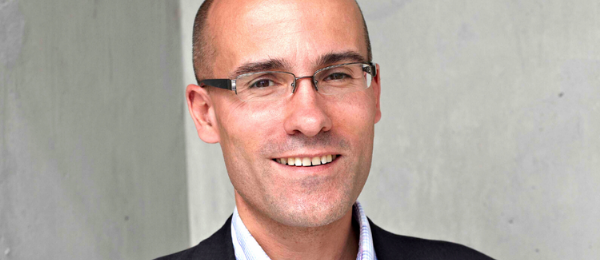 CACHEXIA: READY FOR A CANCER GRAND CHALLENGE Cachexia is a complex metabolic syndrome, and we know very little about it. The deeper we look, the more complex it’s turning out to be. Professor Charlie Swanton – our chief clinician and Cancer Grand Challenges scientific committee member – believes the time is ripe to tackle this toughest of challenges. Charlie reveals why technologies like CRISPR make now the perfect time to better understand the clinical problem that cachexia poses, and what he’d like a successful Cancer Grand Challenges team taking on this challenge to achieve with the support of £20m. |
|
|---|
|
|---|
|
|
| | PROGRESS YOUR RESEARCH THROUGH THE ONCOSTARS ACTION PROGRAMME Whether you have a budding research idea or a start-up that aims to diagnose, treat or prevent cancer, you can apply to our OncoStars Action programme with Panacea Stars. It’s a programme that will inspire you to think about your research differently. We'll show you how an entrepreneur approaches research and support you to commercially develop your ideas to benefit people with cancer. You will receive entrepreneurial training, access to professional networks, mentoring from industry experts, and a tailored pipeline and market strategy to suit your needs. The application deadline is 21 May. |
|
|---|
|
|---|
|
|
| | BJC CALL FOR PAPERS IN LIQUID BIOPSY AND DIGITAL IMAGING The British Journal of Cancer is inviting submissions for papers for two upcoming special issues. The Liquid Biopsy Special Issue, guest edited by Professor Angela Cox (University of Sheffield) and Professor Klaus Pantel (University Medical Center Hamburg-Eppendorf), is open for submissions of pre-clinical and clinical research across the broad spectrum of liquid biopsy research. The deadline for submission is 10 May.
The Digital Imaging Call for Papers invites papers to assess topics including; the state-of-the-art in digital imaging technology; radiomics; interrogation of the immune microenvironment and implications for immunotherapy selection; and challenges of implementation in clinical practice. Submissions close on 1 September. |
|
|---|
|
|---|
|
|
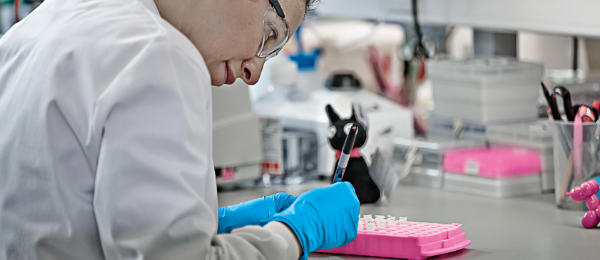 EARLY DETECTION AND DIAGNOSIS FUNDING OPPORTUNITIES We have two deadlines fast approaching for early detection and diagnosis funding. Programme Award, 11 March – funds up to £2.5m for long-term, integrated and renewable research programmes to transform how and when early cancers and pre-cancerous states are diagnosed.
Primer Award, 18 March – funds up to £100k for researchers at all stages to develop early, novel and outside-the-box ideas and collaborations to build and make progress in the early detection and diagnosis field.
|
|
|---|
| 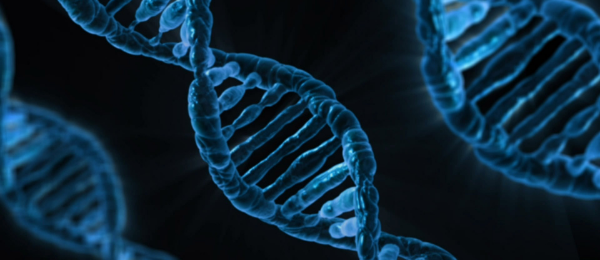 THE FUTURE OF FUNCTIONAL GENOMICS: VIRTUAL WEBINAR Are you interested in learning about future developments in the field of functional genomics? This April, our Functional Genomics Centre (FGC) is hosting a webinar with experts to discuss key trends in functional genomics and how we can expect these to accelerate progress in cancer research. This webinar will also be your chance to hear from researchers who have used the FGC’s genome-wide CRISPR screening capabilities for their research and how you can access these for your own projects. Register your interest today to be the first to know about confirmed speakers, and when the registration opens. |
|
|---|
|
|---|
|
|
| | LUNG CANCER IN NEVER SMOKERS – A SURVEY TO SHAPE DISCUSSION The National Cancer Research Institute (NCRI) Lung Group has identified lung cancer in those who have never smoked before as a key area of focus. They are developing a research strategy and are seeking your help through two routes: - A survey to identify key questions
- A virtual event on 19 May to discuss and agree on a final strategy
Complete the survey to bring forward key research questions or areas that you would like to be considered. |
|
|---|
|
|---|
|
|
| | BREXIT & CANCER RESEARCH: WHAT TO KNOW AND LOOK OUT FOR With the UK officially having left the EU at the end of last year, there is some key information to be aware of as a cancer researcher in the UK. We've created a page dedicated to providing information and links to subjects that may be relevant to you, including visas, access to EU funding, and regulatory changes. We'll be updating this page regularly, so bookmark it to ensure you're up to date. |
|
|---|
|
|---|
|
|
| | SEXUAL DIMORPHISM IN CELL LINES COULD IMPACT YOUR RESEARCH Sexual dimorphism – the expression of divergent characteristics between males and females beyond differences in sexual organs – could be influencing the outcomes of biomedical research in unknown ways. These differences can be observed in in vitro cultured cells; an analysis in lymphoblastoid cell lines found that 10 autosomal genes were significantly regulated in a sex-specific manner. Due to sexual dimorphism, certain journals now have a policy that the sex of immortalised cell lines should be indicated when a paper is submitted for publication to support creation of sex-specific treatments and drug development. Documentation of the cell line source is therefore essential and Ximbio – our business unit dedicated to life science research reagents – has an expanding and comprehensive database of cell lines with this information. |
|
|---|
|
|---|
|
|
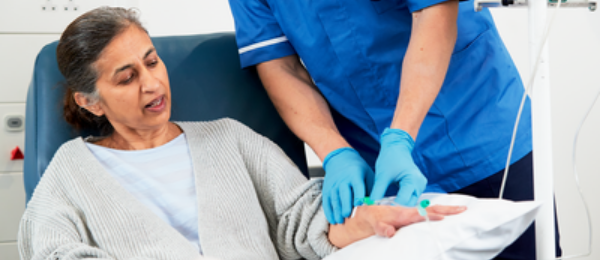 NEW FIRST-IN-CLASS DRUG ADVANCES TO CLINICAL TRIAL We’re partnering with Teon Therapeutics to progress the early phase clinical development of their first-in-class, small molecule adenosine A2B receptor antagonist, TT-702. Teon Therapeutics is a biopharmaceutical company focused on developing small molecules that modulate metabolic signalling pathways in the tumour microenvironment, and it’s hoped that TT-702 can treat patients with advanced hard-to-treat solid tumours. Our Centre for Drug Development will sponsor and conduct the first-in-human Phase I/II clinical trial of TT-702, which is due to open in the second half of 2021 to test its safety and efficacy in multiple cancer indications, including prostate cancer, triple negative breast cancer and colorectal cancer. |
|
|---|
|  MODERATE EXERCISE HELPS PREVENT TUMORIGENESIS IN MICE In a paper published in The Journal of Inflammation, CRUK-funded scientists showed that moderate aerobic exercise in mice reduced inflammatory and metabolic pathologies that actively promote unhealthy ageing and the development of cancer. Exercise resulted in reduced hallmarks of ageing such as telomere damage and cellular senescence. In addition, physical activity also reduced fat in the liver, resolved inflammation and prevented hepatic tumorigenesis. This study suggests that a regimen of structured mild aerobic exercise, which can be used as intervention in the elderly, may help prevent the establishment of tumorigenic microenvironments and other age-related pathologies. |
|
|---|
|
|---|
|
|
| | | Learn more about the life of a researcher entrepreneur from a founder's perspective. 10 March 2021 |
|
|---|
|
|---|
| | | Learn business skills to help translate your research. No knowledge or experience of entrepreneurship required. 23 March 2021 |
|
|---|
|
|---|
| | | Register your interest for the 2021 event. You'll be first in line to know when registration opens. 06 October 2021 |
|
|---|
|
|---|
|
|
| Been forwarded this email? Subscribe to our newsletter to stay up-to-date. |
|---|
| |
|---|
|
|
|